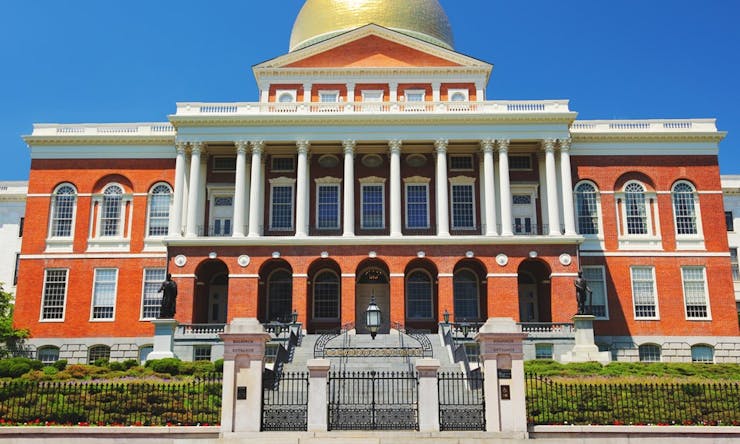BOSTON (AP) — Several top state political leaders including Gov. Charlie Baker and Boston Mayor Marty Walsh threw their backing behind a group established on Thursday to oppose legalization of recreational marijuana in Massachusetts.
Their efforts were quickly dismissed as "reefer-madness" by supporters of legalization.
The anti-marijuana committee, called the Campaign for a Safe and Healthy Massachusetts, said it planned to file papers with the state office of Campaign and Political Finance, which would allow it to begin raising money to fight a proposal that appears likely to go before voters on the November ballot.
A statement announcing the formation of the anti-marijuana group said that in states where the drug has been legalized for recreational use young people had significantly more access to marijuana and claimed that in Colorado, there were more marijuana shops than McDonald's restaurants and Starbucks combined.
Legalization would "put our children at risk and threaten to reverse our progress combating the growing opioid epidemic so this industry can rake in millions in profits," said Baker, a Republican who believes marijuana can be a so-called gateway drug to more dangerous narcotics.
Along with Baker and Walsh, Democratic House Speaker Robert DeLeo and state Sen. Jason Lewis, a Winchester Democrat who headed a Senate committee that visited Colorado in January to gather information about that state's experience with legal marijuana, were among those signing on to the organization formed to fight the proposed ballot question.
Recent public opinion polls have suggested that a majority of likely voters in Massachusetts support legalization of recreational marijuana. Voters in recent years have approved questions that decriminalized possession of small amounts of cannabis and made it available to people with certain medical conditions.
"We are fully confident that Massachusetts voters will reject the reefer-madness, scare-tactic arguments put forward by these officials, just as they did during the decriminalization effort in 2008 and the medical marijuana effort in 2012," said Jim Borghesani, spokesman for The Campaign to Regulate Marijuana Like Alcohol in Massachusetts, in a statement.
The proposed November question would allow Massachusetts residents 21 or older to possess up to 1 ounce of marijuana. It would also create a 3.75 percent state excise tax on retail marijuana sales that would be assessed on top of the state's 6.25 percent sales tax.
The measure is currently pending before a legislative committee, but is not seen as passing before the session ends July 31. Assuming that is the case, supporters who gathered more than 65,000 certified signatures to advance the proposals last fall would need to collect a minimum of 10,792 additional signatures to secure a spot on the November ballot.
The pro-legalization committee, which formed in 2012, reported raising nearly $300,000 by the end of 2015, according to state campaign finance records.
Corey Welford, a member of the steering committee for the Campaign for a Safe and Healthy Massachusetts, said he was confident his group could raise the financial resources necessary to "get the message out about the impact of legalization on kids and our communities."
Welford is a former top aide to Democratic Attorney General Maura Healey, who has also declared her opposition to legalized cannabis.








